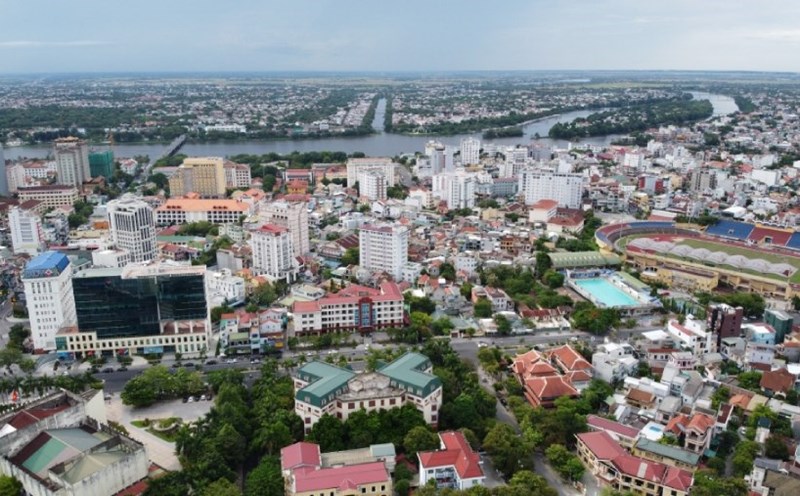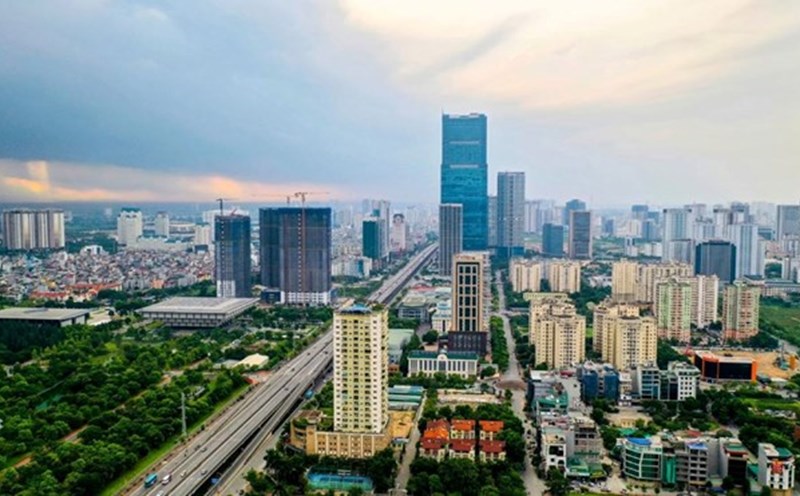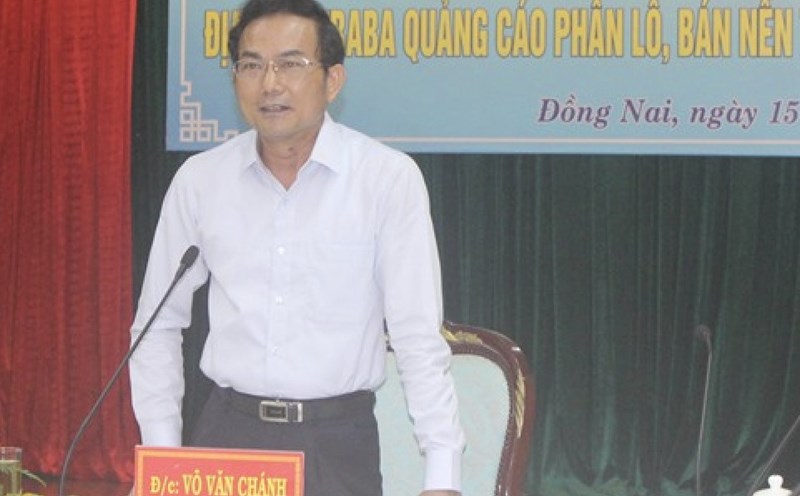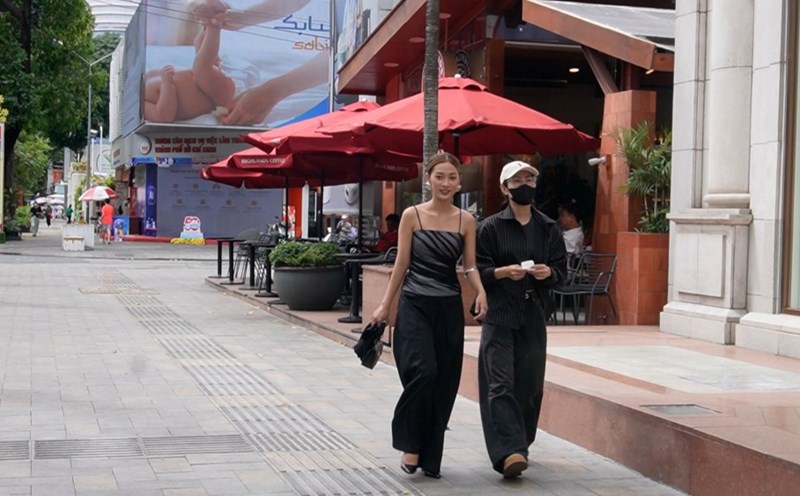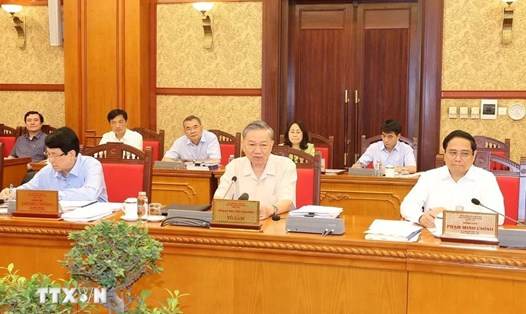In an interview with Lao Dong newspaper, Mr. Nguyen Van Phuong, Chairman of Hue City People's Committee, said that Hue being directly under the Central Government is a milestone - an important historical mark, not only for the development of the locality but also for the preservation and promotion of the unique heritage, culture and history of Hue.
Sir, what is the significance of the National Assembly's official approval of the Resolution to establish Hue City under the Central Government on the basis of preserving and promoting the value of the ancient capital's heritage and Hue's cultural identity at this time for Hue?
The National Assembly's approval of the Resolution establishing Hue City under the central government is an achievement of extremely important political, economic and social significance. This is a milestone, an important historical mark, not only for the development of the locality but also for the preservation and promotion of the unique heritage, culture and history of Hue.
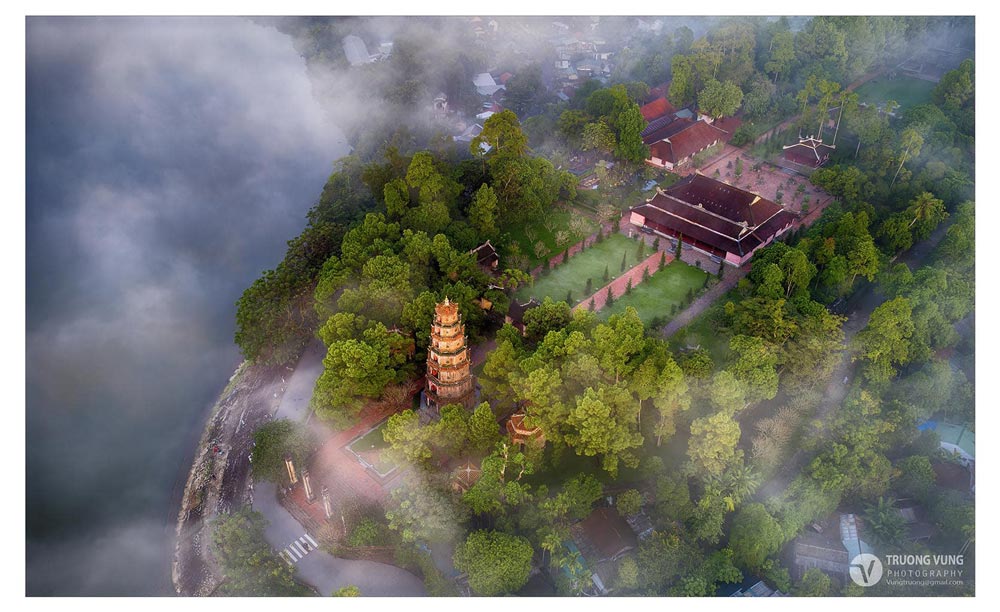
The establishment of Hue city under the Central Government will create new influence and momentum not only for Hue's development but also create conditions for Hue to better exploit its potentials and strengths in terms of location, heritage, culture and make practical contributions to the region and the country, creating new opportunities to continue implementing strategic tasks of the locality, region and nation in the next period.
At the same time, it will help Hue city preserve and further promote the value of the ancient capital's heritage and Hue's cultural identity, with its cultural, heritage, ecological, landscape, environmentally friendly and intelligent characteristics.
Becoming a centrally-governed city is an opportunity for Hue to become one of the major, unique centers of Southeast Asia in terms of culture, tourism and specialized healthcare, as set out in the Resolution of the Politburo. In the future, it will create many new opportunities, attract investment and develop the economy, while improving the quality of life of the people.
What are the immediate things Hue needs to do when it becomes a centrally-governed city, sir?
After the National Assembly approved the Project to establish Hue City under the Central Government, the next steps will focus on implementing specific plans and actions to implement this Resolution.
We have developed a detailed Plan to implement the Resolution such as consolidating and perfecting the organizational structure of the political system at all levels; arranging and assigning leadership and management positions, staff, civil servants, public employees, workers, and part-time workers in administrative units formed after the arrangement and resolving regimes and policies for redundant cases; converting documents for agencies, organizations and citizens... Furthermore, continuing to synchronously implement the process of streamlining the apparatus according to the Central's instructions.
In particular, we continue to strengthen propaganda work, create consensus and mobilize people's participation in the construction and development of Hue city under the Central Government with the expectation of bringing Hue city to a new height, a unique city, imbued with Hue's characteristics with a better living environment, a better investment environment worthy of its new position.
Becoming a centrally-governed city is a great opportunity for Hue but also a challenge, especially when Hue takes its own path, unlike other cities, which is to preserve and promote the value of the ancient capital's heritage and cultural identity. So what are the biggest opportunities and challenges for Hue at this time?
The establishment of Hue City under the Central Government on the basis of preserving and promoting the values of the ancient capital's heritage and Hue's cultural identity will create conditions for Hue to better exploit its potentials and strengths in terms of location, heritage, and culture.
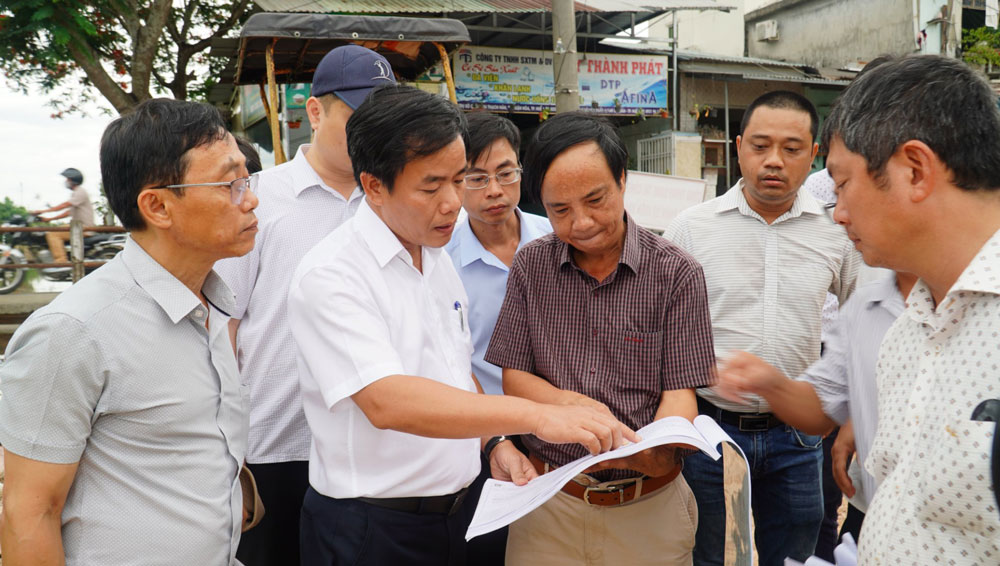
This is also an opportunity for Hue to become one of the major, unique centers of Southeast Asia in culture, tourism and specialized healthcare as set out in the Resolution of the Politburo.
With the special mechanism just approved by the National Assembly, localities will have more resources when 100% of the entrance fees to relics are retained to restore historical and cultural relics in the area; along with other mobilized resources, the work of restoring and preserving relics will be implemented more smoothly and synchronously.
In addition, becoming a centrally-governed city will create conditions to attract resources for faster development, invest in the construction of synchronous and modern infrastructure works, and provide favorable policies for investors, contributing to boosting budget revenue worthy of a national urban area.
The biggest challenge for us in the future is how to develop in a harmonious and sustainable direction, reduce the pressure of population concentration in urban areas, limit intervention and impact on relics and traditional architectural landscapes...
How to ensure harmony between the preservation and promotion of cultural heritage values with economic development trends in the context of urban development. But at the same time, there must be strategies and policies to "turn heritage into assets" - into specific figures contributing to the local budget.
Hue will always promote investment calling for economic development, but always adhere to the development goal associated with preserving the environmental landscape and conserving heritage and cultural values, although this has a limited impact on the socio-economic development of the province.
Another challenge is that despite improvements and basic investments, transport infrastructure and services still need to be upgraded to meet the needs of urban and tourism development in the new context. High-quality human resources to meet the requirements of economic development, especially in the tourism and service sectors, are still limited…
Thank you!
(Article from the publication Lao Dong Xuan Bac Mien Trung - 2025)


